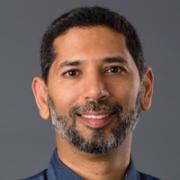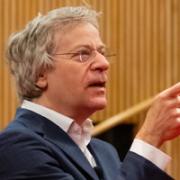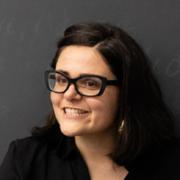Javier Corrales, Dwight W. Morrow 1895 Professor of Political Science
A good op-ed is informational. As a social scientist, I feel I have an advantage in that department. The currency of social scientists is facts. We spend our lives observing, describing, classifying and explaining them. We are expected to achieve unrivaled command of facts. For that reason, I also feel we are called upon to share those facts, not just among other academics, who already know them, but among those outside our world, where, by definition, our familiar facts are unfamiliar.
Read Javier Corrales’ “Why I Write (Op-Eds)” »
Pawan Dhingra, Professor of American studies
As people read these pieces, even if they disagree, they affirm the pieces’ worth. And when most effective, the writings serve to correct public impressions and push people and organizations to consider meaningful changes. Such hopes connect with what motivated me to become a professor. I entered the academy because I wanted to make a difference. This motivation leads to writing opinion pieces not as an addendum to my work but as an integral part of what it means to work.
Read Pawan Dhingra’s “Focus on the Rule, Not on the Exceptions” »
Lawrence Douglas, James J. Grosfeld Professor of Law, Jurisprudence and Social Thought
Shortly after the 2016 vote …. I was listening to an NPR interview with a climate denier slated to assume a position of power in the Trump [Environmental Protection Agency]. In response to the guest’s smooth evasions and well-rehearsed deceptions, I found myself pounding the dashboard and cursing uncontrollably. A passing motorist cast me an alarmed glance. So, as I had done at other times in my life, I turned to writing as a way to shore up my mental health. This may sound glib, but I think it is largely true: Writing struck me as a more sensible register of political outrage than screaming inside a moving vehicle. And while there was no lack of writers eager to toll the bells of alarm about the new president, I found that I did have things to say.
Read Lawrence Douglas’ “Commentary on My Commentary” »
Eleanora Mattiacci, Assistant Professor of Political Science
It is experts we need to hear more from, not conspiracy theorists. And rather than providing definitive answers—or “asks,” in the op-ed lingo—we need to help non-experts understand not just what we know but how we know it and why/how comfortable we are with not knowing. Uncertainty is not going anywhere anytime soon. But this could be a once-in-a-lifetime chance to change how people think of it and whom they listen to when they are faced with it.
Read Eleanora Mattiacci’s “On Public Writing” »
Catherine Sanderson, Poler Family Professor of Psychology
Writing for a public audience is simultaneously very easy and very hard. All of my writing has been a direct extension from my scholarship, so it’s work I know well. I might struggle some to find the right lede, but describing the research base comes fast. It’s thrilling to dash out my thoughts on a current event in a few hours one afternoon, send a query to an editor, receive a positive response within the hour and then see my words appear online two days later. This process provides almost instant gratification, unlike the process of submitting an article to a journal in my field, which typically represents years of research and writing followed by months of waiting for reviews to come back and—if I’m lucky—another year to see the piece in print.
Read Catherine Sanderson’s “My Attempt to Lead a Life of Consequence” »
Austin Sarat, William Nelson Cromwell Professor of Jurisprudence and Political Science
In joining the conversation about the issues and outrages of the day …. I have sometimes felt like an envoy from a place where facts still matter to a world in disarray. I have left comfortable routines behind and devoted energy that might have produced more specialized contributions to my field’s journals in order to illuminate public issues, participate in public debate and speak truth to power. Even old academics can learn new tricks.
Read Austin Sarat’s “Bearing Witness” »
Ilan Stavans, Lewis-Sebring Professor of Humanities and Latin American and Latino Culture
To write for a general audience is to be an active participant in democracy, which, no one needs to be reminded, is a most fragile form of government. I don’t know if it’s the best; I do know it is far better than all the alternatives, because power corrupts, especially when it rests on a single individual. Democracy is messy. None of us can count on it if we aren’t ready to defend it. To defend democracy means not only to add your voice to the cacophony but to make it matter.
Read Ilan Stavans’ “On ‘Public’ Writing” »







